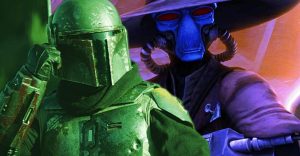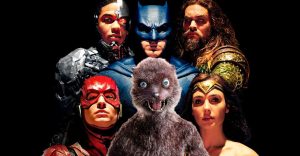Carnivàle: 4 Reasons HBO’s Supernatural Series Deserves More Than 2 Seasons (& 4 Reasons It Ended Perfectly)

For two seasons between 2003 and 2005, Carnivàle, an obtuse and ethereal series, aired on HBO. The show revolves around a traveling carnival making its way across the country at the height of the Dust Bowl in the 1930s. Beneath the surface, though, exists a mythical, supernatural fight between good and evil exposed through glimpses and clues, leaving viewers to figure out the rest for themselves.
Due to poor ratings, HBO canceled Carnivàle after its second season, leaving the show’s creator, Daniel Knauf, and his writers with little time to wrap up its complex narrative. Some diehard fans were disappointed with its ending, believing it needed an additional season to resolve its surrealistic story arc. This list examines reasons why Carnivàle should have been granted that third season, as well as reasons why its current ending works.
8 Deserves More: There Is No True Final Confrontation Between Brother Justin And Ben

In the show, Nick Stahl plays Ben Hawkins, an Oklahoma farmer and fugitive who is picked up by the traveling carnival after the death of his mother. Ben is haunted by prophetic dreams, and has a special ability to heal others through touch. As the carnival moves closer and closer to California, Ben starts to realize he’s destined to fight a battle against a great evil: Brother Justin Crowe.
Played by Clancy Brown, Brother Justin is a Methodist minister who, since childhood, has been in touch with the dark forces and abilities that reside within him. As Brother Justin’s congregation swells, the gloaming influences inside grow stronger. Most of the show anticipates a major confrontation between Ben and Brother Justin, yet it never happens.
7 Ended Perfectly: The Good-Versus-Evil Theme Is Sufficiently Explored By The End Of Season 2

Showrunner Daniel Knauf’s dense mythology in Carnivàle incorporates elements from Judeo-Christianity, Eastern religions, occultism, and secret societies like the Knight’s Templar. By the second season, it’s clear to viewers that Ben is a symbol of lightness and Brother Justin is a symbol of darkness.
They both have recurring dreams about a man with a tree tattooed on his chest, meant to symbolize the Tree of Knowledge of Good and Evil in the Garden of Eden, and both characters’ role in the good-versus-evil trope are indicated by each dream, symbol, or image presented to the viewer. By the show’s end, it’s obvious Ben and Brother Justin represent either side of the proverbial Biblical struggle that wages on into perpetuity.
6 Deserves More: The Carnival’s Supporting Cast Needs More Time To Develop

While much of the lore revolves around a few main characters, Carnivàle is still an ensemble drama that delves into the lives of the various members of the carnival. From Sampson, the carnival’s manager (Michael J. Anderson), to the Dreifuss family to Lodz the blind seer (Patrick Bauchau), the show’s diverse cast and their backstories are full of untapped potential.
The series’ supporting cast includes a talented array of actors, such as Toby Huss, Tim DeKay, and Adrienne Barbeau. Giving more space to the unique struggles and quests of these other characters could have enriched and expanded the show’s themes and deeper meanings.
5 Ended Perfectly: Ensemble Dramas Like This One Will Always Have Unresolved Plot Lines

Large, elaborate television productions like Carnivàle will always have characters whose plotlines are not as developed as others. The focus of an epic series like this one can only expand so far, and the supporting characters in the show exist to add weight and context to the Depression-era 1930s.
While different viewers will have always their favorites, it’s impossible for a series of this caliber to give every character a full, lengthy development. Instead, Carnivàle gives viewers enough of what they need to know about each character in order to understand the forces, attitudes, and cultural woes they are all up against.
4 Deserves More: The Show’s Underlying Mysticism And Surreal Symbology Needs More Time To Evolve

Beyond the good-versus-evil struggle, there exists a perplexing mysticism and supernatural lineage both Ben and Brother Justin exist within. They are considered Avatars, supernatural entities with special powers. Ben and Brother Justin are both drawn to a man named Henry Scudder, who turns out to be Ben’s biological father. The carnival’s elusive Management is also implicated in the supernatural world, and he turns out to be a Russian man who previously held Ben’s position as the Avatar of Light.
The complicated nature of Avatars, as well as the role different characters with paranormal abilities play, is only suggested through symbols and events, leaving viewers curious about how everything fits together.
3 Ended Perfectly: The Show’s Mythology Is Intentionally Elusive

On the flip side, the nature of mysticism and supernatural events are often difficult to define in clear terms. The religious and spiritual ideas that exist below the surface in Carnivàle provide powerful allegories about survival during a time of great suffering for many Americans.
The show’s focus on dreams, which are often blurred and fleeting, is a testament to the fact that supernatural forces at play will always remain outside the reach of human comprehension and knowledge. Carnivàle is not the type of series to provide answers easily.
2 Deserves More: Sofie’s Evolution Would Have Been The Focus Of Season 3

Clea DuVall plays Sofie, a member of the carnival who reads fortunes and cares for her catatonic mother whom she communicates with telepathically. Sofie’s role in the show’s mythology isn’t as transparent as Ben’s and Brother Justin’s, and Knauf wanted her evolution to be slower because she turns out to be Brother Justin’s daughter and the final Avatar, known as the Omega.
Knauf wanted a third season in order to explore Sofie’s development as the Omega who, like the original Avatar in the supernatural lineage, the Alpha, is female. Instead, the show ends with Sofie assuming Brother Justin’s power in a cornfield, leaving viewers to wonder what will happen next.
1 Ended Perfectly: Sofie’s Status As A Powerful Avatar Is Evident

Considering aspects of the supernatural will always be inexplicable, the show’s ending, albeit a bit rushed, still provides some clarity about Sofie’s status. While it doesn’t establish how her powers will alter the course of the show’s events, the second season ending indicates that Ben’s true adversary is Sofie.
DuVall does a fantastic job of giving Sofie a meek and understated quality while demonstrating how women like her are forced to fight within a male-dominated world. Her assumption of Brother Justin’s powers is a powerful allegory for overcoming obstacles.
About The Author

















